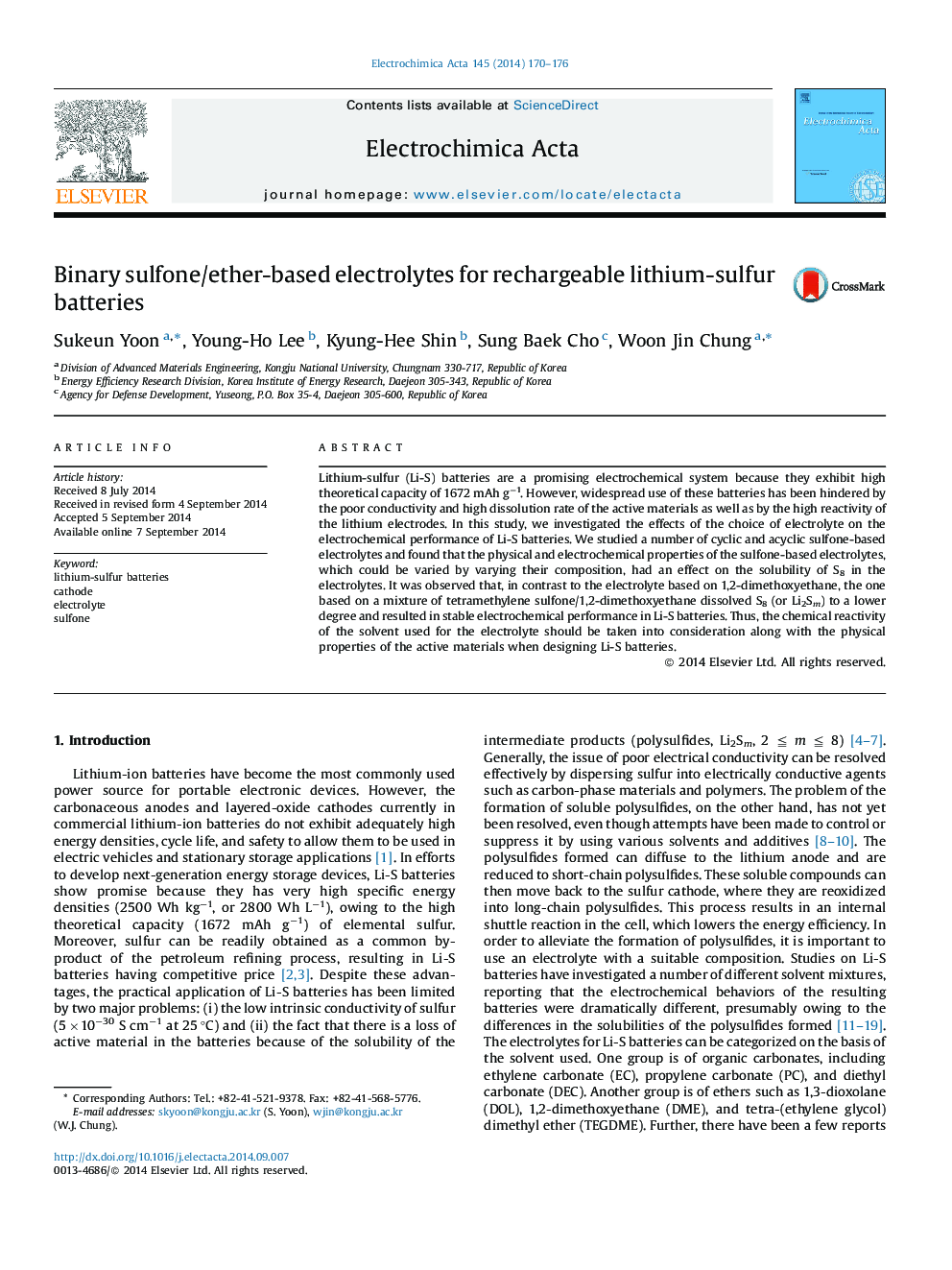| Article ID | Journal | Published Year | Pages | File Type |
|---|---|---|---|---|
| 185002 | Electrochimica Acta | 2014 | 7 Pages |
Lithium-sulfur (Li-S) batteries are a promising electrochemical system because they exhibit high theoretical capacity of 1672 mAh g−1. However, widespread use of these batteries has been hindered by the poor conductivity and high dissolution rate of the active materials as well as by the high reactivity of the lithium electrodes. In this study, we investigated the effects of the choice of electrolyte on the electrochemical performance of Li-S batteries. We studied a number of cyclic and acyclic sulfone-based electrolytes and found that the physical and electrochemical properties of the sulfone-based electrolytes, which could be varied by varying their composition, had an effect on the solubility of S8 in the electrolytes. It was observed that, in contrast to the electrolyte based on 1,2-dimethoxyethane, the one based on a mixture of tetramethylene sulfone/1,2-dimethoxyethane dissolved S8 (or Li2Sm) to a lower degree and resulted in stable electrochemical performance in Li-S batteries. Thus, the chemical reactivity of the solvent used for the electrolyte should be taken into consideration along with the physical properties of the active materials when designing Li-S batteries.
